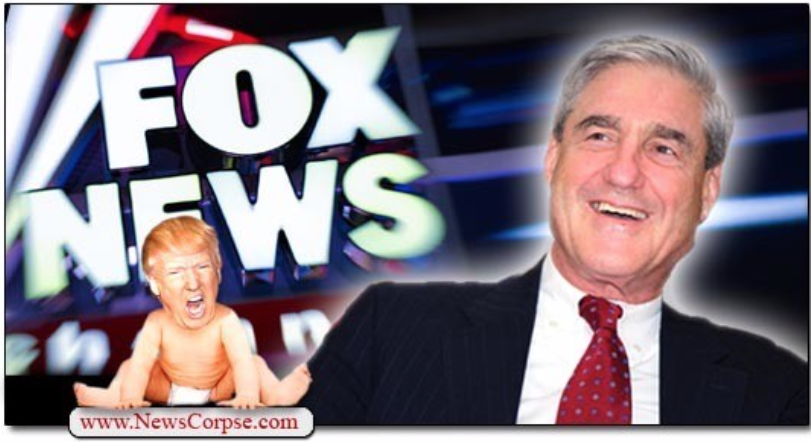CommentsFACT FINDING-Even as the special counsel has amassed more and more evidence about the Trump presidential campaign and Russia, the president's allies have proclaimed the scandal a fabrication.
After a period of quiet, the special counsel Robert Mueller's investigation is seizing headlines yet again. In the past week, we learned that Paul Manafort, Donald Trump’s former campaign chairman, broke the terms of his cooperation agreement by lying to Mr. Mueller’s investigators, all while his lawyer was briefing Mr. Trump’s legal team on what Mr. Manafort told the special counsel. The conservative author Jerome Corsi, facing possible indictment, made public a potential draft plea agreement with Mr. Mueller that contains incendiary allegations of attempted coordination between Mr. Corsi and the Trump campaign adviser Roger Stone with WikiLeaks.
We also learned that Mr. Mueller had reached a plea agreement with Michael Cohen, Mr. Trump’s former lawyer, for lying to Congress about the Trump Organization’s plans to construct a property in Moscow — plans that extended into the 2016 campaign and reportedly involved an effort to give Vladimir Putin the gift of a $50 million penthouse apartment.
Mr. Mueller’s team has given no hint of what’s to come next. The National Archives’ recent unsealing of a “road map” by the Watergate special prosecutor Leon Jaworski — provided to Congress in 1974 to inform potential impeachment proceedings against Richard Nixon — has fueled speculation on what a Mueller report might look like, but the question remains: Just where is all this going?
From the day the Mueller investigation began, opponents of the president have hungered for that report, or an indictment waiting just around the corner, as the source text for an incantation to whisk Mr. Trump out of office and set everything back to normal again. The evidence that the special counsel has so far made public is damning enough. Yet even as the investigation seems to gather momentum, it has become increasingly clear that whatever findings Mr. Mueller reaches will be only a small piece of a much larger political puzzle.
The special counsel’s office has already produced a hefty pile of evidence. The indictments of a Russian “troll farm” called the Internet Research Agency and of Russian military intelligence officers involved in the hacking of Democratic Party emails told a detailed story of a Russian effort to stir up American political passions. The documents revealed by Mr. Corsi suggest that he and Mr. Stone — who was in regular contact with Mr. Trump at the time — might have known in advance of planned releases by WikiLeaks of hacked documents.
Not enough collusion for you? Consider Mr. Cohen’s latest plea agreement. Mr. Trump defiantly tweeted in January 2017, “I have nothing to do with Russia — no deals, no loans, no nothing!” But it now seems that the Trump Organization’s efforts to establish a Trump Tower Moscow were quite involved and continued into June 2016, just before Mr. Trump was nominated as the Republican Party’s presidential candidate. And Mr. Trump knew about it: Mr. Cohen’s plea states that he regularly briefed the Trump family on his work.
There has also been no shortage of speculation that the special counsel may be writing a report on obstruction of justice by the president. Whether he is or not, plenty of evidence is already in plain sight: After the Manafort cooperation agreement fell apart, the president refused to rule out a pardon, saying, “Why would I take it off the table?”
And consider the installation of Matthew Whitaker, a critic of the Mueller inquiry, as acting attorney general — a move seemingly calculated to limit the fallout from the investigation or even, in a worst-case scenario, enable the president to shut it down.
The story is steadily worsening for the president. But there’s an alternate story taking hold as well, or perhaps many alternate stories. Mr. Corsi has spent several weeks complaining that Mr. Mueller’s investigators attempted to force him into a false confession — a version of events picked up by pro-Trump voices such as the Fox News host Tucker Carlson. The president has likewise taken to accusing the Mueller team on Twitter of “horribly threatening” people and “ruining lives for them refusing to lie,” comments that might stem from information provided to him by Mr. Manafort.
Likewise, George Papadopoulos, the former Trump campaign adviser who pleaded guilty to lying to federal investigators and initially cooperated with the special counsel, has shifted in recent months to an aggressively conspiratorial posture. In tweets and appearances on Fox News and other pro-Trump media, he has accused American, British and Australian intelligence agencies of fabricating the Russia scandal.
The allure of a Mueller report lies in its imagined promise of a single, definitive truth capable of cutting through the haze of lies, confusion and “alternative facts.” But Mr. Corsi’s and Mr. Papadopoulos’s antics are a warning that this hope will inevitably fall short. Conspiracy theorists and prosecutors live in different worlds: The first, unmoored from truth; the second, devoted to proving facts beyond a reasonable doubt. Mr. Mueller has the power to charge Mr. Corsi for lying; he has already done so to Mr. Papadopoulos. Rather than crumbling, though, their falsehoods have continued to spread and grow — and they’ve taken root in the media ecosystem in which the president chooses to spend his days.
In this environment, the question is less what Mr. Mueller will do next and more what Congress and the American people will do with the information they already have.
By now it’s clear that the special counsel is not armed with a silver bullet, not because the facts are not bad for the president but precisely because they are. If facts were enough, Mr. Trump would already have been impeached.
(Quinta Jurecic is the Managing Editor of Lawfare. She previously served as an editorial writer for the Washington Post and as Lawfare's associate editor.) Prepped for CityWatch by Linda Abrams.
Tags:















